Recently, Vasyl Samokhvalov hosted the Evening Stream, during which he discussed the state of the environment in Ukraine. The topic of the program was formulated as follows: "Ecocide: who will pay, who will restore?". Dmytro Zaruba, First Deputy Head of the State Ecological Inspectorate of Ukraine, and Oleh Lystopad, an environmental expert at the ANC network, tried to answer these complex questions. Below are the most interesting parts of the conversation about why, according to our estimates of losses, we may not receive compensation; how metals and combustion products from demining poison our land and water; whether hydroelectric power plants and other destroyed facilities will be restored and whether nature can heal itself.
EVIDENCE FIRST, PUNISHMENT LATER
- As a result of Russia's full-scale invasion of Ukraine, the environment has been damaged by $57 billion. This was stated by the Deputy Minister of Environmental Protection and Natural Resources of Ukraine Ruslan Strelets. There are several relevant questions. How realistic are these figures? Could they be higher? How are they calculated, how did we come up with this figure?
D.Z.: - The government of our country has designated the State Environmental Inspectorate as a body that records events related to armed aggression that affect the environment and directly calculates damages. Last year, the Ministry of Environmental Protection approved 7 methods by order, which are used to calculate these losses. This includes issues related to land pollution, water pollution, and so on. This is the destruction of the forest fund of Ukraine. This is an issue of air, etc. And the State Environmental Inspectorate uses these methods directly to calculate damages. And the figure that was mentioned by the Minister of Environmental Protection is a preliminary figure, of course, because, unfortunately, the military aggression continues. And our inspectors cannot get everywhere. There are occupied territories and war zones.
- How does it work?
D.Z.: We record what happened. Then, when the State Emergency Service or the authorities that ensure security at the facilities or territories allow us to leave, we leave. If it is related to the forest fund, we calculate the damage, how many trees were destroyed, the area of trees. If it is related to the contamination of the territory, for example, when there was a hit to oil storage facilities or oil depots, we directly conduct laboratory tests, take samples and determine what is contaminated, the amount of this contamination, the area of contamination, and this is how we calculate the damage caused by the Russian Federation.
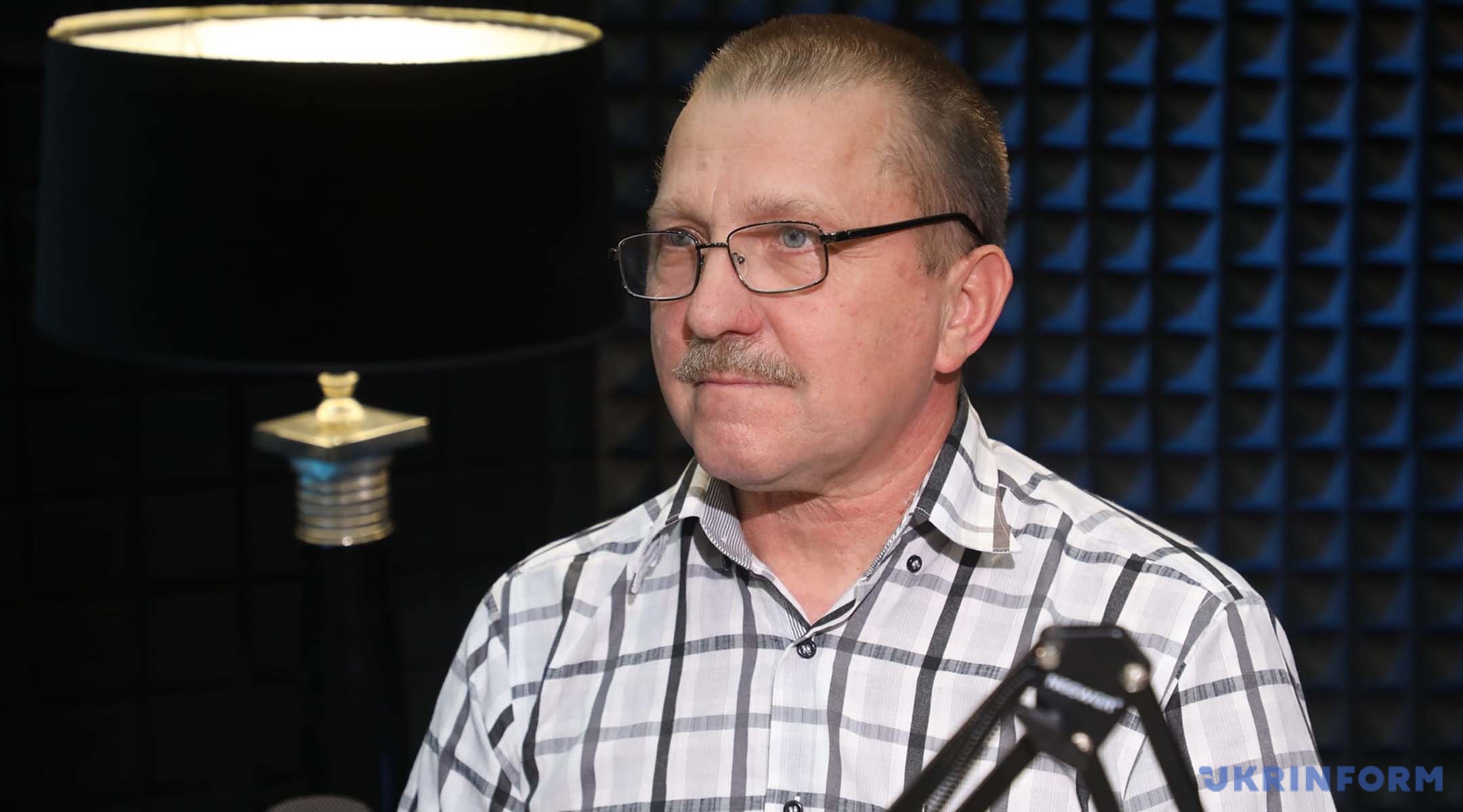
- To what extent does this figure reflect the real situation, or could it be higher?
O.L.: - We will not get anything for these billions, according to these methods of calculation. In fact, the amount is higher if it is calculated according to international methods, because the methodology we use is a post-Soviet methodology based on the concept of maximum permissible concentrations. Soviet scientists calculated that if, for example, the concentration of a toxic substance in a room or outside exceeds a certain threshold, it is already harmful, it is already the maximum permissible level, and it cannot be allowed to go higher.
We have all these calculations - how much something costs. Our inspectors are courageous people, I'll tell you that. Despite the fact that I criticize the methods, they themselves work at the forefront. They work in good faith. The recording itself is important in any case. These facts can then be recalculated under certain conditions. The only thing we will really get, in my opinion, is for the forest. Everything is clear there.
- But what about the accounting of the frontline and temporarily occupied territories - to what extent can it be carried out?
D.Z.: All international experts and representatives of international organizations say that if you submit a case to international judicial bodies, any evidence must be sufficient and confirmed. Further proceedings will depend on this.
- So I'm trying to combine environmental damage and money. And when I read about 57 billion, I wonder if this means that someone will show you: here's your money, and immediately the air will become cleaner, the water will be cleaner, and everything will be cleaned up. How does it all fit together?
O.L.: - International methods provide for what kind of assessment? Assessment of restoration. That is, the ecosystem has been damaged, and a certain amount of money needs to be spent to restore it. They showed this by calculations. That is, this was the state, this state was damaged, and it costs this much to return it to this state. Okay, we checked it out - yes, it is true. And we already know roughly how much it costs, these are already methods. Another thing is toxic waste and all sorts of things that have been released after fires and so on. It costs a lot of money to clean up toxic substances. For example, near Kalynivka, when the oil depot was on fire, oil leaked out. There are technologies to clean up these underground horizons or water, and they are very expensive, but okay. And there is another option when money can be extorted. There is an ecosystem, for example, a piece of meadow or a piece of swamp, which produced so many ecosystem services. It provided us with air, water purification, hay. And it did not add to it because it was polluted. You can also calculate how much has not been added. Here's the case of Iraq-Kuwait, where enormous amounts of money were submitted for compensation - 10 countries around, they all submitted. In reality, only 3 billion was reimbursed.
- What do you mean by this?
O.L.: I want to say that we need to immediately or as soon as possible adapt international methods to our conditions. There are very good specialists there, about 60 people. They just need to be given the opportunity. They will propose these things, approve them, and switch to these new methods.
- How can the figures of damage accounting according to Soviet methods differ from what we need?
O.L.: - The experts I spoke to say that it is at least 10% more. That's the minimum. But again, going back to the occupied territories and the contact line. Today, space technology has advanced so much that we can actually make an estimate. But the bottom line is that high-resolution images are classified because of the war. And without them, it is difficult to make more accurate calculations. But we can make rough estimates. For the same forests, we have at least 2 research centers, I know, one in Kyiv Polytechnic Institute (KPI) and one in
National University of Life and Environmental Sciences of Ukraine (an international center as well), which are able to make such assessments of forests, fires in particular. And when, if you remember, the forests in Chornobyl were burning before the great invasion, they also worked, made these assessments. There are methods, there are maps, there are specialists.
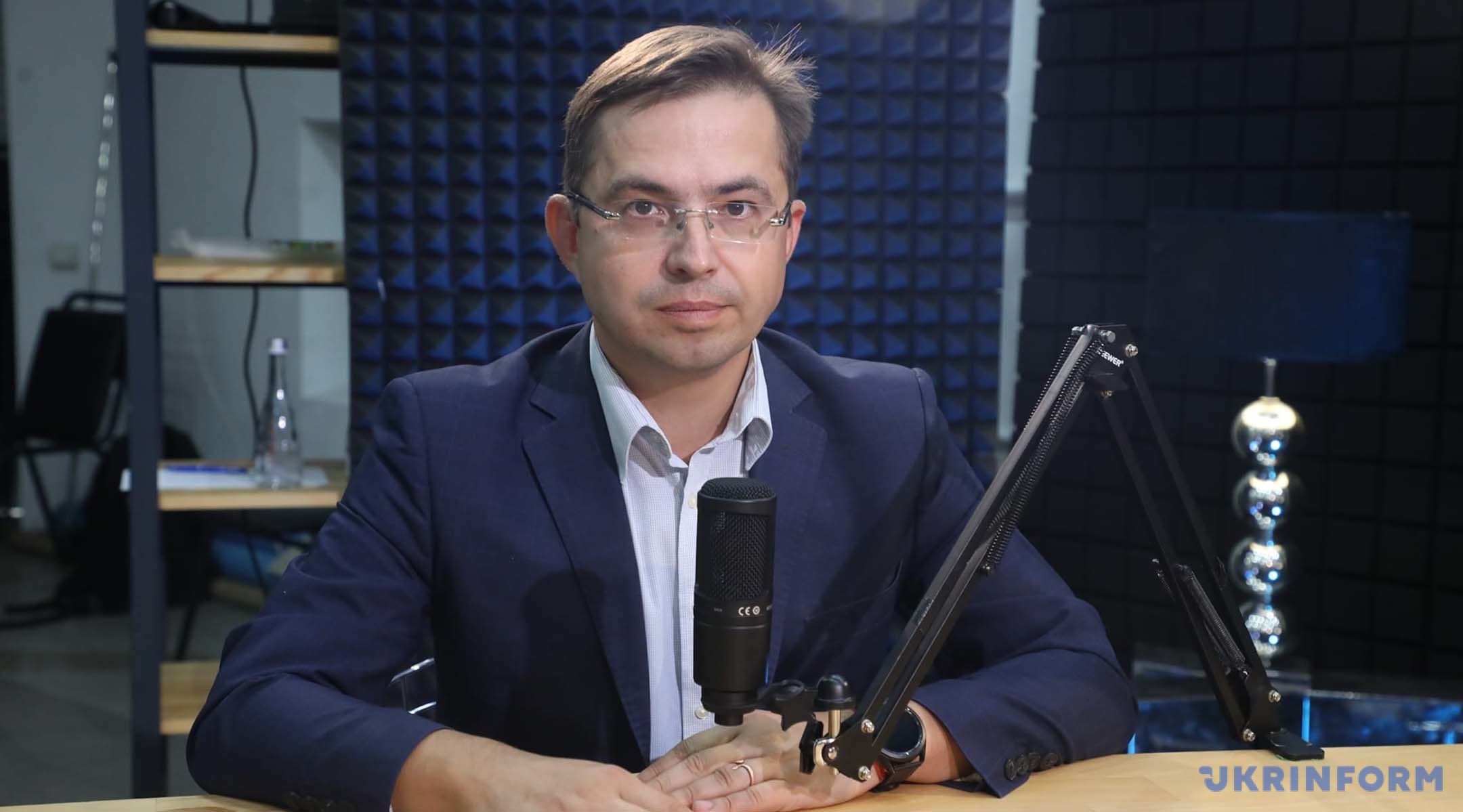
- Where has our environment suffered the most damage?
D.Z.: - If we take natural resources, it is actually land, water, and the nature reserve fund.
According to one environmental organization, public experts, as I saw, calculated 1 square kilometer of agricultural land in Kharkiv region that was hit by artillery strikes. They counted something like 480 craters, and roughly calculated how much was contaminated with various metals that are part of the shells and missiles. And these are large volumes - there are dozens of tons of different components: aluminum, copper, iron, etc. About 90,000 tonnes of earth were turned over. Can you imagine how much damage the Russian Federation has done to the territory of Ukraine per 1 square kilometer? There are thousands, hundreds of thousands of kilometers of this kind of damage that will need to be counted.
O.L.: - Of these 57 billion, about half is for air damage. The international methods I mentioned don't estimate air damage, i.e. it burned, we breathed it in, it fell on a meadow, on water, somewhere else, and then the air is purified naturally. So there is no damage to the air - we can immediately reject this amount in any case of these charges.
D.Z.: - In short, our expert council is currently developing a new methodology for air, and we will submit proposals to the Ministry of Environment to amend the order approving the methodology for atmospheric air to reflect the new approaches. Because when the methods were being developed and the war had just begun, the government had to develop them in a short time, because, of course, there were no approaches to methods in Ukraine at all. Although, frankly speaking, as a citizen, the war began in 2014, and many international experts made reports and conclusions that Ukraine did not actually have any methods for calculating the damage caused by military aggression until 2022.
- Ukrainian law defines ecocide as the mass destruction of flora or fauna, poisoning of the atmosphere or water resources, as well as other actions that may cause an environmental disaster-I cited Article 441 of the Criminal Code of Ukraine. At the same time, we have the Rome Statute, which is the basis of the International Criminal Court, and it deals with four types of crimes: genocide, crimes against humanity, war crimes, and crimes of aggression; and there have long been discussions about adding a fifth crime, ecocide. How does all this fit together?
O.L.: - So, Article 441 of the Criminal Code is completely inoperative, no sentences have been passed under it.
- And I can then clarify that before the full-scale invasion, there were almost no criminal proceedings under this article, and by the end of 2022, there were only 14 such cases in the court registers.
O.L.: - But there are no verdicts, no punishments, because the article is very vague, very unclear. A group of lawyers has been working in the Ministry of Environment for almost a year now, and they have worked with our environmental partners for human rights, and they have developed a lot of things, but in the Ukrainian language there is a perfective and an imperfective expression, and everything about the environment is often imperfective.
- Why did this happen?
O.L.: It's a classic lack of political willpower. I don't want to offend my colleague, I said that the environmental inspection works within the framework outlined, it works well, I can say it frankly. But the current leadership of the Ministry of the Environment, let them not be offended either, is extremely weak, and I have not seen such a weak one for a long time. And only the war saved this ministry from another merger with the Ministry of Energy, which already happened when the current government team came to power, only then the public managed to get this ministry restored again. I know for a fact that they were going to merge it again, but there is a war, there are losses, there is an important topic.

- Let's go back to the article, why is it so vague?
O.L.: - We need to clearly define what "mass destruction of flora and fauna" means, because no one knows what mass destruction means. Because a lawyer comes and asks you to prove that it is massive.
D.Z.: - The question always arises: evidence of the previous state of the environment to compare and say whether it was massive or not. One of these criminal proceedings was against "Kryvorizhstal," opened by the Security Service under the article "Ecocide". But this criminal article is more focused on the responsibility of an individual, there is no legal entity, there is the responsibility of a specific person. And with regard to international practice, the question also arises as to who should be held guilty of ecocide: whether it is an individual or a country.
O.L.: - As for the Rome Statute, there are two words about environmental damage in the paragraphs that are already written there, but everything is so vague. There is a group of international lawyers, an initiative to introduce ecocide, because it is not only our problem; in other parts of the world, in other situations, even in peacetime, things happen that require this wording and that it is possible to bring people to justice for it.
D.Z.: - You can bring an oligarch to justice, for example, or someone else, but as for the state, there are no such mechanisms today... one of the mechanisms that was once used in the Iraq-Kuwait case was a compensation commission that was created by a decision of the UN Security Council. But unfortunately, we understand that Russia is one of the five countries in the Security Council that has a veto. Therefore, many international and Ukrainian experts are looking at how to collect reparations from Russia.
Today, evidence is being collected and formed. In the future, when the mechanism is clear (because international law actually shows the procedure for collecting evidence, it is identical and practical in all countries - it is the collection of information, materials, etc.), how to do it, in which case, who will file a lawsuit, is another question. The main thing now is not to lose evidence. If evidence is lost, there will be nothing to go to international institutions with in order to try to bring Russia to justice and recover these losses.
ONE FIELD WILL BE DEMINED AND RESTORED, THE OTHER WILL BECOME A STEPPE
- How does ecocide affect people's lives in Ukraine? What are the specific communities, residents, and districts that have suffered the most?
O.L.: It's hard to say what is most affected. Kalynivka, for example, is a cottage town nearby, people have invested decent money, built beautiful houses. They can neither relax on the shore there, nor fish, nor swim. There are also problems with water. Well, the people there are wealthy enough to buy water for themselves, but the people who lived there, the villages that were there before, they have problems.
- This is a small case study...
D.Z.: - This is the most vivid example of what can be described as ecocide. Because it is really a massive destruction of the environment. This is not only an ecocide, it is also an economic issue, because Kherson region was actually left without water. And according to the Ministry of Agrarian Policy of Ukraine, 94% of the territory of the Kherson region will not be able to receive water for agricultural development and agricultural business next year. And there are many, many such issues.
O.L.: - So, the forest belts that were planted in the South at one time, the forest belts give a 20% increase in yield. Today, there are no forest belts where the fighting took place.
- Does this mean that this fertile layer of land will be simply leveled?
O.L.: - 20% of this land is 20% of the harvest. We can talk about why they contributed to the increase in yields, but let's just take it as a fact - minus 20%. The fertile layer is the appropriate section: the fertile layer on top, the transitional layer, the bedrock, sand, clay. And in the same order, they need to be mudded in order for it to work the way it did. And if we see that everything has been dug up, every sinkhole needs to be [mulched], no matter how much it costs...
D.Z.: - This will actually lead to the reclamation of the land. Because reclamation involves partial replacement of soil to resume further activities. After the First World War in France, a certain area was designated by the government and bought out, preserved, and this area is still not used for any activity there. It's just forests where you can't do anything. Because, first of all, it is mined and has not been cleared of mines yet, a century has passed. And secondly, it is contaminated land. Therefore, unfortunately, part of the territory of Ukraine can be just such an example, the Red Zone.
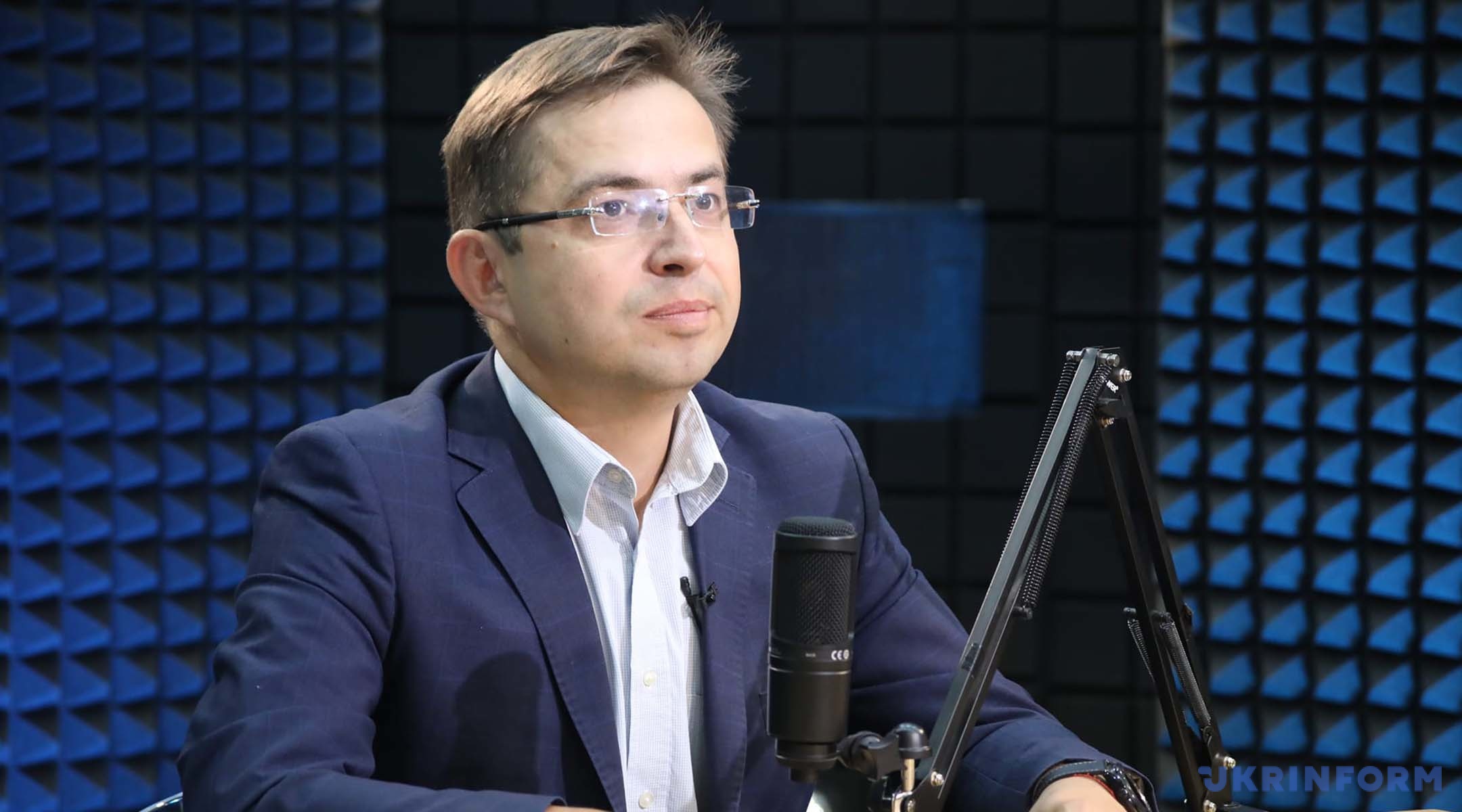
- What else poses certain threats to our farmers? Because the products may not be export-oriented, to put it mildly.
D.Z.: - To grow it, we need to first demine it to make it safe. Because we see examples when farmers came out after the fighting in Zaporizhzhia or Kherson regions, and they practically tried to barely clear the mines themselves, losing their lives and losing their equipment.
O.L.: - I think the calculations are as follows: the production of one mine costs $30, and the demining seems to be, costs $1,000.
- How do we influence the world now?
O.L.: - For example, 700,000 tonnes of oil products were burned. Emissions increased accordingly, causing a decrease in vegetation productivity. People have already started counting.
- Is this a speck on the body of the planet or is it global?
O.L.: No, there is a very cool experiment. We have these old market scales with two geese on them, a few weights on them, and we put some coins in them. And we start throwing one at a time, this one is lower, and this one is higher, throwing and throwing, then we add one coin, one penny, and bam, everything changes. It can be the same coin. At any moment it can be the same coin. The world is so fragile, it's hard to imagine, the environment lives by its own laws. We can ignore them... now, by the way, there is a hydrological drought outside the window. People don't understand that it's great for the offensive, but it's terrible for the environment, it's a repeat of 2020. If we don't collect water in the reservoirs now, how will we survive the winter? How will we water the crops?
- Does this mean that the rains have not reached us?
O.L.: - It hasn't rained for almost 40 days, it's been a dry autumn, a hydrological drought. Why is there water in the Dnipro? Because there are swamps in Polissia, we have a valley of rivers like the Desna, which have not yet been destroyed, but at the same time we are selling these swamps and peat bogs for amber and peat extraction, destroying them, destroying these hydrogeological reserves. On the Desna River, we give away the riverbed for sand mining...
D.Z.: - Or plowing it up.
- So Ukraine can become the straw that breaks the camel's back.
O.L.: - Yes, Russia can become the thief who tossed the last coin.
D.Z.: - You need to understand that military equipment uses diesel fuel, which has a very strong impact on the environment. And this is also a very important issue.
- About mines. It will take tens, perhaps hundreds of years to completely demine Ukraine, as The Washington Post wrote here. How bad is the situation?
D.Z.: - This is my phrase, I was just citing the example I gave a little earlier about France. That is, demining in such a large area will indeed take decades, and the environmental impact is very serious. Because any demining will have an additional impact on the environment.
O.L.: I'll add a little optimism. Today there are so many modern developments that, if we had the money, we could speed up these processes a lot. These are drones that allow us to detect where mines are located, those in metal cases, underwater drones. These are developments at our Academy of Sciences and in private companies. They show the skilled workers that no one is stopping them from putting this into production and carrying out demining not manually, but in this mechanized way. There are wonderful bio-searchers...
D.Z.: - The Center for Demining gave us information that there are a large number of plastic mines that cannot be destroyed in this way today.
O.L.: - But such technologies are also being developed (perhaps not as developed). The question is money. There are great protective suits for miners. It just costs money, money, money.
- The Environmental Protection Organization estimates that almost a third of Ukraine's land area may be contaminated with ammunition and harmful substances. Already, in some areas of the frontline, the content of heavy metals in the soil is sometimes 25 times higher than normal. We have already talked about this a bit. Is there any way out of this situation? Or should we just hope that nature will heal itself over time?
D.Z.: - Over time, of course, we know many historical examples when, yes, the earth has changed several times, and so it will happen someday. But, unfortunately, in our time...
O.L.: - The question of funds: if you really want to restore the fertility of this field, you have to carefully process it with metal detectors, every piece of it... But we are going to Europe, we are going to become members of the EU. The EU has adopted and is currently discussing the 2030 Biodiversity Strategy at the level of laws in some countries. And it stipulates that 20% of the countries' territories should be protected areas, important, key areas, i.e. swamps, steppes, forests, wetlands, etc. And perhaps this is one of the options to leave them: let them be steeped where they are in the steppe regions.
The steppes are also important, they are a unique thing, the only thing is that there should be grazing or mowing. Well, maybe some ungulates will appear there or we will settle them there. From time to time they will suffer, but if they are not disturbed, the population will develop.
D.Z.: - You have to be optimistic, after all, the territory of Ukraine has also experienced, let's say, military events - the First World War, the Second World War. Well, of course, perhaps not to the same extent, not with the same substances, but to the fullest extent...
O.L.: - When a missile arrives, especially an old one, of the old configuration, it is such a poison, I don't know...
THEY WILL GIVE MONEY FOR THE RESTORATION, BUT IT WILL BE FOR GREEN TECHNOLOGIES
- After the explosion of the Kakhovka hydroelectric power plant, Ukraine lost 18 cubic kilometers of water, which is about a third of the Dnipro cascade's water, as the minister said again. What is the threat of this and is it necessary to rebuild the Kakhovka HPP?
D.Z.: There are many opinions on this matter, I even think it's 50-50. I think this is a professional discussion that will be included in the government's program on the state of the Kakhovka reservoir. Because, of course, we need water - both for the agricultural sector and to supply water to industrial regions. We already have Kryvyi Rih suffering from a lack of water.
O.L.: - The Government's decision was made without consulting scientists, unfortunately. The government's decision was made in violation of the law, and I predict that a lawsuit challenging the legality of this decision is possible after the war is over.
- What is the opinion of environmentalists?
O.L.: - There are different opinions, indeed. There are people who believe that we can safely do without restoring the reservoir, and they give their arguments quite thoroughly. They say that let the Velykyi Luh be restored, let the Dnipro be restored, these problems can be solved this way or that way. But what about Crimea? The North Crimean Canal?
- Again, shipping has fallen.
O.L.: No, no, the Dnipro will be navigable, it's not a problem. What's the state of the canals? It's a sieve, meaning that everything goes into the soil, there is a huge evaporation there - this is the south.
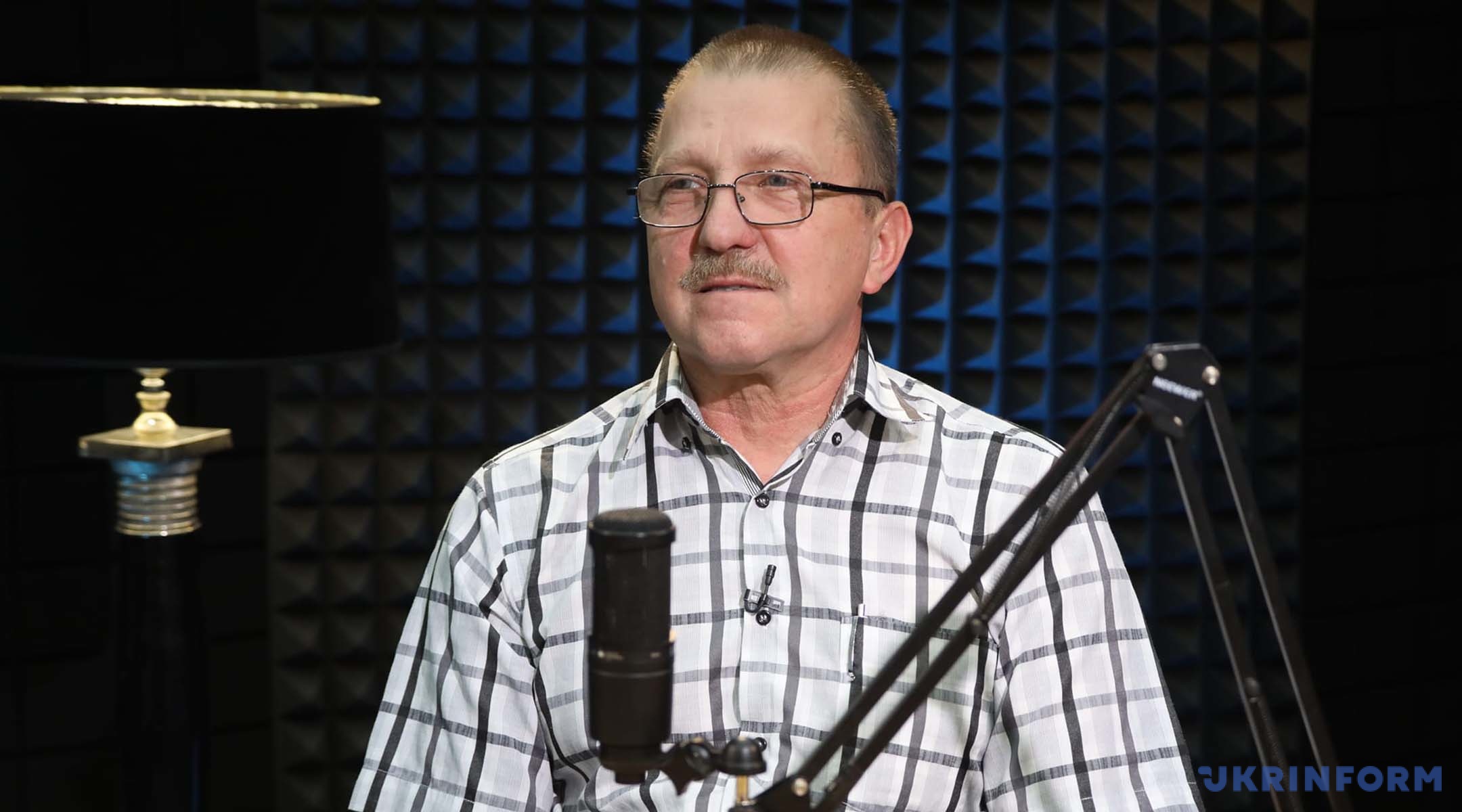
- They talked about the Crimean Canal.
O.L.: - Not only that, but all the main channels, Kakhovka in the south, which they say we will broadcast on. First of all, nothing has been supplied to them for two years now, because the territory is occupied, and they have missed two seasons. They are deteriorating even more. Let's first assess them, then we'll talk about how much water we need, and then we'll repair them.
As for the supply of cities, drinking water will be provided, the government has already allocated a billion hryvnias for the construction of alternative water pipelines, and according to high-level officials, they are about to be completed, at least Kryvyi Rih - Nikopol - Marhanets will be supplied with drinking water. I believe our officials, it will be done. There are industrial enterprises - what to do with them? There are three coal-fired thermal power plants that used water - what to do with them? What to do with my parents' dacha on the shore of the Kakhovka Reservoir? Because the sea is gone, there is nowhere to take the water that used to be watered at all the dachas. We need to find money to reach the new channel of the Dnipro. I am also concerned about this, to be honest...
Just a week ago, there was a meeting of the Presidium of the Academy of Sciences of Ukraine to discuss this issue. It lasted for two hours and was quite thorough. There are studies by the Institute of Hydrobiology, there are excellent specialists. We have other scientific institutions, but they were not asked, they were not involved. There is Mark Zheleznyak, a fantastic world-class specialist, who has been used by Japan for 15 years, and after Fukushima they took him to Japan, where he is a professor, a world-class star.
D.Z.: - By the way, there was a scientific and expert council of the Environmental Inspectorate of Ukraine.
O.L.: - The Inspectorate knows who to invite. We have an institute of mathematical modeling machines, we have space technologies that will allow us to predict all this. Well, ask them, involve scientists. No. The Ukrhydroproject institute has already received UAH 300 million through tenders.
- I'm asking if it's clear, if we have thought through and calculated everything that has happened.
D.Z.: It is impossible to fully calculate the losses. Because even if we take the protected areas, especially the Left Bank, which are now occupied, the methodology provides for the creation of an appropriate environmental expert commission to investigate the entire situation. And then pass it directly to the developers. The preliminary estimates are one and a half billion dollars, but I am sure that this is not the final amount, it is only the initial one.
- Since the beginning of the full-scale invasion, almost 1000 dolphins have died in the Black Sea, and we have also seen that we have problems with the Kinburn Spit... In general, what about the Black Sea?
D.Z.: - With the Black Sea? The sea is also polluted, of course, when it is used for military operations. When the Kakhovka hydroelectric power plant was blown up and the salinity of the Black Sea decreased, it recovered, but this also had an impact on biodiversity. So, unfortunately, the impact on the Black Sea continues.
O.L.: - The warships of the Black Sea Fleet do not have any waste disposal systems. Everything that is produced there, sorry, all the shit, is sent directly into the sea.
- Now to the most interesting and brief point: who will restore all this and how? Where will the money come from?
O.L.: Confiscation of Russian assets.
Environmentalists are claiming, or let's say the environment is claiming, and the people who depend on it are claiming a part of those 300 billion.
- Are we counting on direct assistance from international partners?
O.L.: - Today, for example, I listened to a presentation. There is an international financial institution from the World Bank group, and they told us what their environmental requirements are for any project. That is, if, for example, we want to take out a loan to rebuild the Kakhovka dam, we will also have to go through these environmental procedures. Perhaps that's why the president has already said that we will find the money ourselves, in our budget, we will find this billion dollars.
D.Z.: - As for the others, we talked to representatives of UNEP, the UN Environment Program, many other European commissions, and the UNDP. They are already looking for sponsors who are ready to invest directly in projects, not even loan projects, donor assistance for the specific restoration of certain areas or facilities. That is, it is certainly not the whole territory of Ukraine, but certain objects or territories are ready to be supported financially for restoration.
- From what I've heard, the environmental component may become one of the main requirements for Ukraine in restoring the country from international partners. How ready are we for this?
D.Z.: - We are a country that suffered a lot of damage from the war in Europe over many years, and we are developing many things that are not even in the world practice. Even those international approaches that do exist are marked with an asterisk: "not for martial law." That is, it is very difficult to use these methods or approaches.
O.L.: We are not ready. Our legislation is not ready for us to effectively restore the environment. The judicial system. Without reforming the judicial system, which is also beyond the scope of our discussion, nothing will happen without fair courts.
Option A - in 10 years, the temperature in Kyiv will be 40 degrees and we will faint
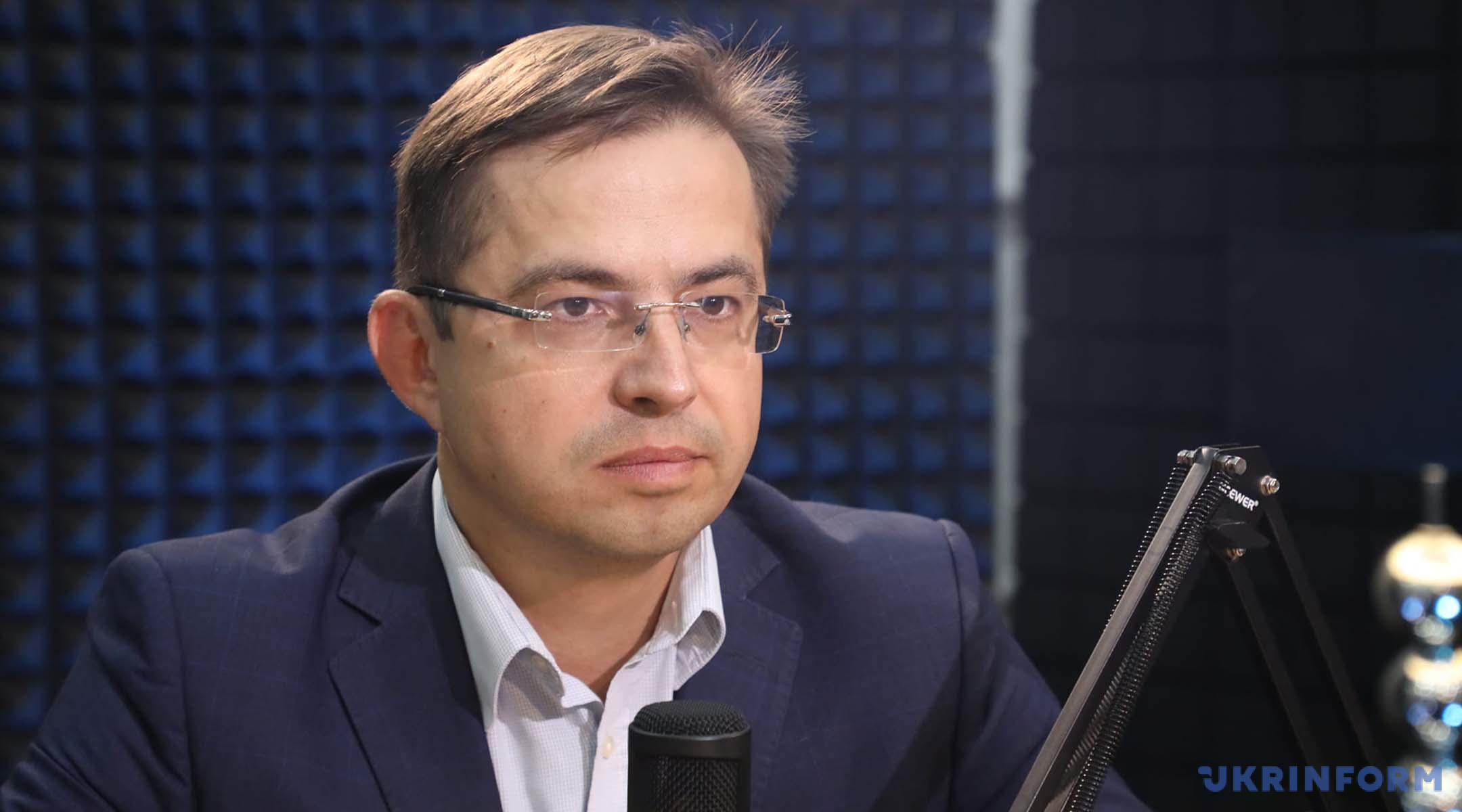
D.Z.: We must understand that restoring Ukraine's industrial potential will involve a certain impact on the environment. And if we do not adhere to the latest technologies and green economy, we may, roughly speaking, restore Azovstal to the way it was - without treatment facilities.
- How long will the recovery take? What will recover quickly, what will take tens or even hundreds of years?
O.L.: I'll tell you. Option A, for example. The same government remains in Kyiv as it is today. In 10 years, the temperature in Kyiv will be 40 degrees, and we will be falling down, losing consciousness. These are simple things, it seemed - don't shave the grass, don't shave it because the dust flies, leave 5 cm. But no. If you didn't cut the grass, the municipal services would come to you and fine you. The leaves are raked, the soil is dry, the tree does not get the necessary moisture, the tree has dried up, a new tree has to be planted. This is money again. These are simple things, we're talking about more global issues here, but the city authorities, not just the Kyiv authorities, lack this nail.
- Let's not talk about city authorities, let's talk about the country.
O.L.: We have the example of the Chernobyl zone. As soon as a person stops interfering in the processes, everything is restored in 3, 5, 7, 10 years. I'm talking about the mined field further away from Makariv, where I was, a two-meter-high grassy thicket. And there's a pair of buzzards flying around, and something smaller is chasing them... And I'm sure that life is abundant there, in this field.
10 years, 7 years - the crown of a pine tree is closing, and it is already called a forest when the crown is closed. It takes 80 years to cut it down, commercially. It takes 40 years to make the first profit from forestry, to manage it. These are the terms defined in forestry science. What is 10 years in world history? Nothing.
Vasyl Samokhvalov
Photo: Yulia Ovsyannikova
